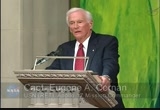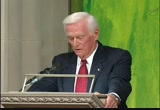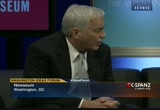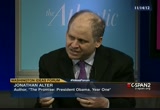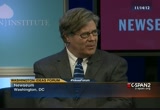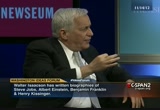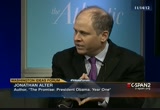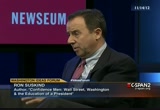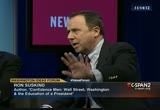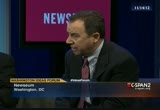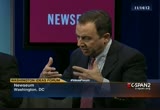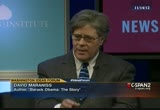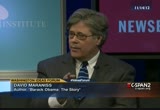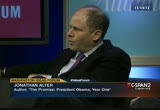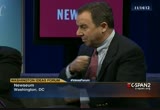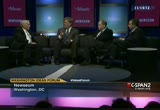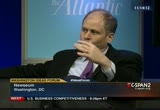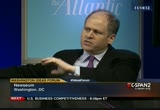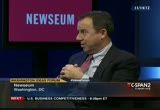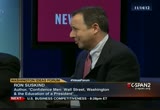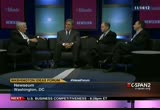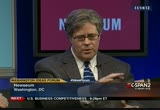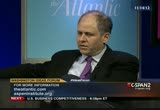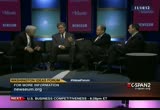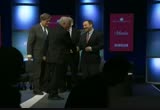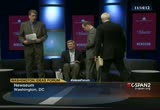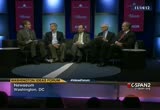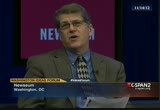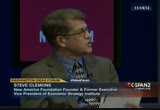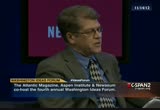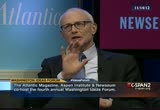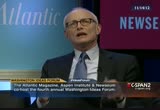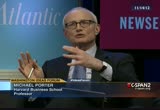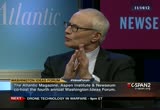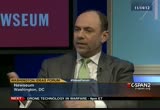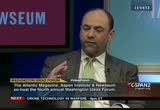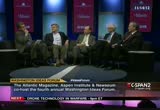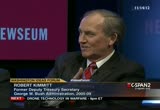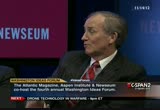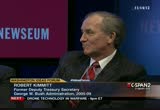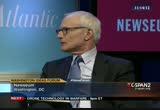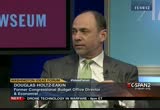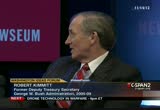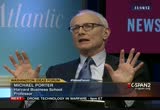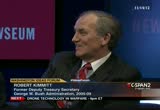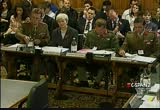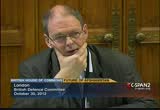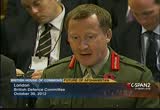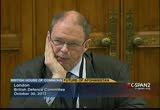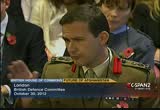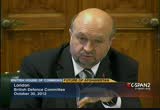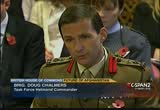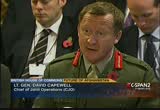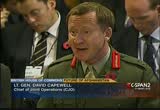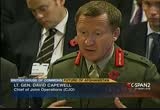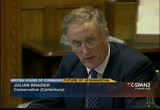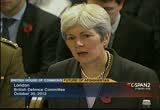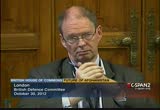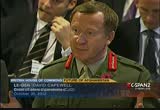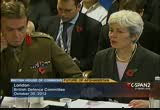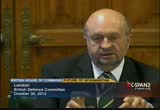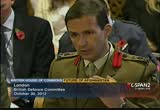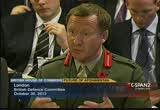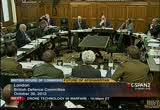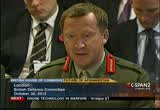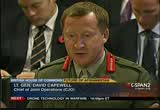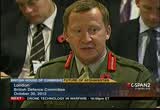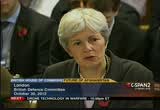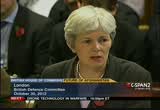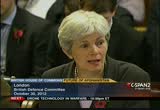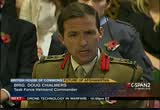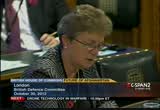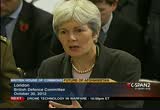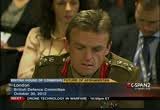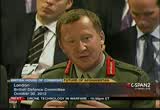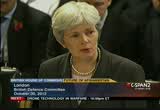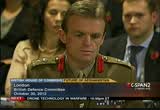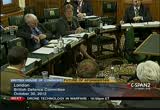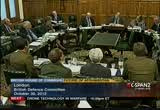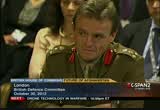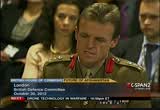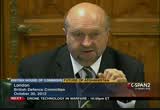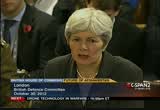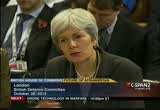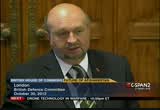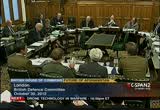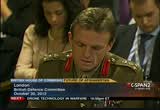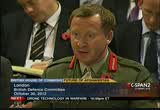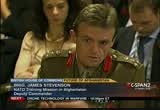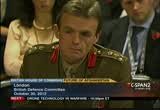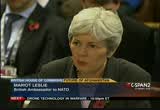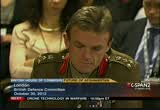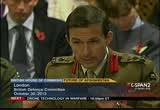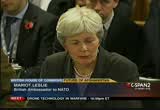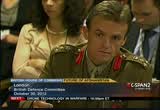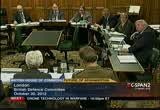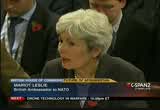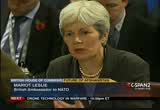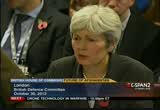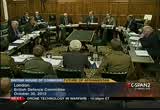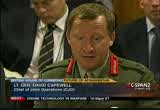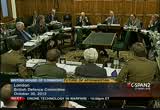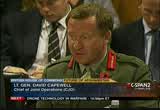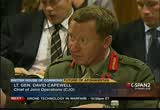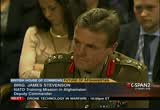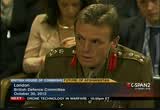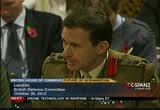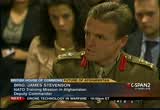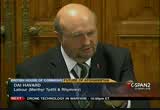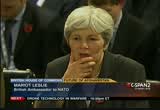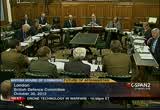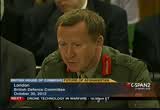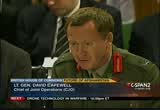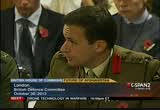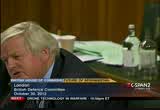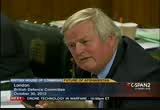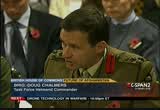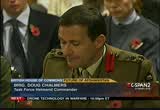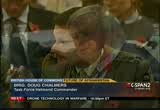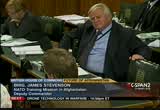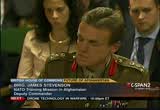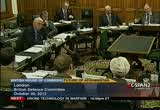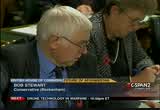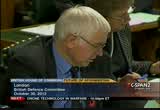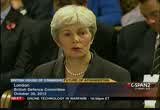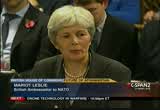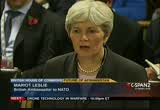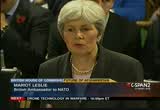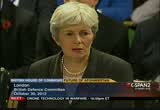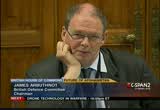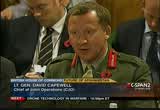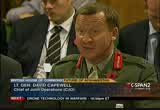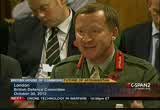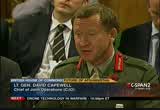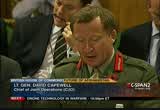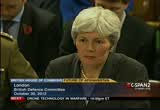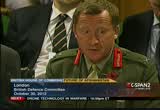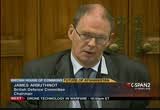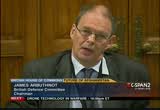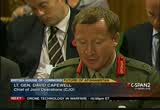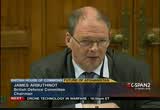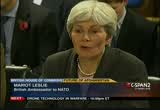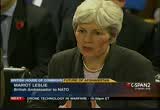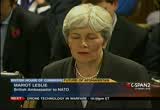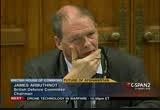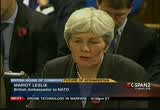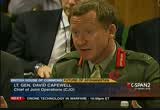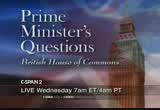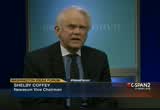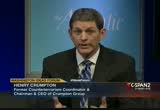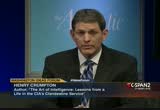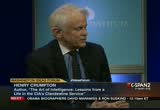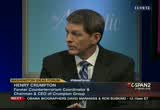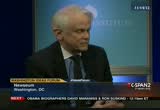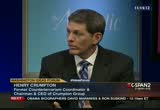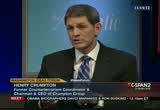tv Tonight From Washington CSPAN November 20, 2012 8:00pm-11:00pm EST
8:00 pm
8:01 pm
icon, a national hero of unimaginable proportion and a legend whose name will live in history long after all here today have. forgotten. fate looked down kindly on us when she chose neil to be the first to venture to another world. to have the opportunity to look back from space at the beauty of our own. it could have been another.ow it wasn't. it wasn't for a reason. no one, no one, but no one could have accepted the responsibility of his remarkable accomplishment with more dignity and more grace
8:02 pm
than neil armstrong. he embodied all that is good and all that is great about america. more from the memorial service for neil armstrong thanksgiving day on c-span at 10 oom eastern and just before 11:30, a behind the scenes look at life as a teenager in the white house with susan ford baal and lyndon johnson rob, and after one, how scientists use game skills and theories to solve world problems. a conversation with president obama's biographers after his re-election. hear from journalists ron suskind, author of "the confidence men: wall street, washington, and the education of a president." the atlantic, aspen institute, and the newseum hosted the
8:03 pm
forum. >> we have one titled "why did he win and why did he lose"? it was about obama, and now the title is "how did he win?" we have three authors of excellent books about president obama, john alter, ron suskind, and draifd maraniss who will be interviewedded by a great biographer, and my former editor, walter isakson, and asked the question what is he really like? >> and where is the profile? >> yeah. it's only laptop. i'll get it to you after this is over. walter, thank you. >> margaret, thank you, thank you, all, great to be here. [applause] david, for those who can't figure out which is wish, david, jonathan, and that's ron.
8:04 pm
the next book -- in fact, starting in the middle with john. talking about -- i can say your title; right? >> well, it would be the first time, but that's all right. >> breaking news here. those who like the fall can,s things fall apart, his book is "the center holds" which is about this election. what is it in your first book about obama that made you cast him as a centrist? >> well, i always thought he was a pragmatist, and pretty much his overall approach to issues as an illinois state senator, in the u.s. senator, and when you read the audacity of hope, his book about his all-together brief senate career. it's clear he's not an ideolog. i -- i always thought that, you know, the idea of him as a socialist or whatever was just a smear. >> how did he get painted that
8:05 pm
way, or was there an element of truth to it? >> this is quite a bit about what the next book is about -- >> margaret talked bow -- >> the smear, there was a concerted effort started even before he became president, but really accelerated in 2009 to destroy him politically for the purposes of regaining power, and so it was not a conspiracy, but there were a lot of people who had, you know, a similar interest in trying to paint him as something that he was not. i mean, we all know about the whole birther movement and everything. one of the amazing parts about that is that how far it moved into the mainstream where you could hear nonsense on the floor of the congress or from board rooms. i mean, if you stop -- we're so used to it, we don't stop to think about how completely insane it is. what would have had to happen
8:06 pm
for him to have been born in kenya. he would have had clairvoyant con con spir resists to ensure he was born here no honolulu. at a certain point i want to get to a theory i have about the media which i'll try out on you. >> people like mitch mcconnell said, well, you know, i'm not -- i don't know anything about where he was born. i don't have anything to tell you about that. i mean, come on, can't you say he was born -- >> what were you about to say? >> no, just kidding. i have a whole riff on that. >> sure, it's better. >> it's not just the newspapers, but the naturalization service tracking obama's father that
8:07 pm
period, every week, wanting to kick him out of the country, and if he left, he would have never got back in, and the hospital, where obama was born, that week a journalist took one of the famous doctors there out for lunch and asked, well, what interesting happened in your life this week, and she said, well, stanley had a baby. stanley is the mother's name. it's not every week that stanley has a baby. >> before i get to ron, the, you know, you all just opened up a discussion about sort of the conspirator echo chamber on the far right blogosphere and everything else. i have a new theory. i used to think that, talk radio, and some elements of, you know, fox or whatever it may be, were really helping the republican party and now i think
8:08 pm
it led the party to have some real troubles, and hurt them more than helped. >> i -- no, i think that's absolutely right, and we're seeing that much more clearly now with efforts to take power failed. if romney won, we wouldn't be saying this, but they were living in a sealed universe where before the election, you had, again, not just romney partsons, but those watching too much fox, should be held accountable, george lill, michael barone, dick morris -- >> is trey here? wrote a good piece -- >> john martin wrote a piece in "politico," and in 1972, pauline living in manhattan, a great
8:09 pm
film critic -- >> how could nixon -- >> i only know one person who voted for him and carried every state but massachusetts. i think something like that, less extreme version because obama didn't do as well as nix nixon, but something like that was going on with serious people. i had a bet with a conservative radio talk show host who bought me dinner in new york, that he nows owes me, that romney would win with more than 330 votes. >> ron, to get back to the main subject of what we learned about obama, one of more thesis in "confidence men," and then an op-ed piece five or six days ago is that obama did not mobilize his awemy of supporters well enough in the first term in order to truly be who he was. can you explain that? >> well, it was an area of some regret, certainly looking back by folks in the white house, and some was, as we say, uncharted
8:10 pm
territory. there is a gap between the election and governance. we all know about that, but having said that, they certainly did not apply a great deal of energy or strategy to how to mobilize obama's army from 2008. it was quite a crowd r -- crowd, and it was muscular and ready, sort of where do we go? you look at the 2 # million people leaping and cheering in the mall in 8 degrees. they were looking for direction for the model. we see that everywhere. of course, what's interesting is you see that cropping up in the summer, in the middle of health care, the tea party rises from the loins so to speak from the republican party, ahijacked that debate. the administration lost control of it, wrestle it back after scott brown and after they lost their majority in january the following year, but then, of course, occupy wall street adds welcoming up -- as well coming up. obama keeps them at arms' length
8:11 pm
for the most part. i think the thinking, and i hear this from progressive activists over the last few days is a bit of a -- what's that line, lbj, you know, says to various leaders of his day, make me do it. you know, -- marlin -- martin luther king and others, make me do it. people are getting a system that obama and the signaling system of america, there is a need, even after obama's done, after a new election, there's a sense of a new start is make him arise in new ways to the challenge of the moment. that's an interestst -- interesting moment, looking back in 2009, thinking clearly with a hard eye about maybe what he might have done and now having a fresh hundred days to capitalize on. >> do you agree with john that he's essentially a pragmatist? >> i do. i do think he's a pragmatist. it's interesting. i think that he's a guy who, in
8:12 pm
my reporting, you find him sending up trial balloons in meetings, you know, and they tend to be, in many cases, property left, your activist, roosevelt-style things, which john is an expert on, the financial change, transaction taxes, for example, in meetings saying i like this idea. there's ways to do taxes, tamp down wild frothy speculated trade, and rebalance the system out of whack, but he's pushed back by summers or geithner or others and sometimes he's with summers, stimes with geithner, but he moves towards pragmatism. some say towards caution rather than activism that some folks hoped for, certainly on the left. having said that, the man's evolving. we can't help ourselves. we all evolve. i think the big question is how this man, will evolve has evolved, and how that expresses
8:13 pm
itself now that he has a refreshman date. >> that's the big question. what's the big answer? >> well, i'm waiting i have to say. some answers, i think, i've gotten over the last year. i think he's gotten better at upping the dynamics of -- understanding the dynamics of presidential power, how to use the bully pulpit, how to get people in sympathetic communities, box in his opponents, look at the payroll tax drama of february of this year. they handled that well, and the republicans, in december of 2010, were on fire, and by february of 2011, $140 billion of stimulus, a good sign was president learning that it's not arguments that bring opponents over. they will not budge. box them in, use the power of the presidency. the question is has he built a new set of skills and tools that
8:14 pm
he'll use, and i think we're going to see in the next couple months. it's a big time for him. david, both in your book and in a recent op-ed piece, you asked the question what really drives them? what is the -- is that right -- give us a -- i mean, that seems to be the theme of the book. what is driving this guy, and it's a bit of an open question. what do you think you are seeing now as the driving motivations? >> well, i wrote about this last week in terms of the second term, and i think the drive now is greatness. i think he has the opportunity for that. that doesn't mean he'll reach it, but, you know, even as the second term often creates unexpected problems and a lame duck atmosphere that can devolve, couldn't have had the chance of greatness without the second term, and i think that as
8:15 pm
you watched him in the first term, as ron and john captured, he was in a learning process. there's many times in that period where his progressive supporters in particular were frustrated by him wondering why is he not clarifying things, why not attacking in a more clear way, and he was learning during that whole period, and he was also trying to find out where the traps were. the essential lesson i drew from the life is that in every step along the way, he's been trying to figure out where the traps are and how to get around them, whether it's the trap of being born in hawaii, a paradise island so far from power, another biracial, negotiating his way in terms of race in the world, the trap the chicago poll sicks as john and the family know well can get you trapped. every point along the way, finding the traps, and in the white house, it was tougher, but
8:16 pm
that's what he was trying to do. there's a learning process where he's getting better at that part of it. >> when you say "trying to learn what the traps are," that gives you an innate caution, and you said, though, he's going to strive were greatness -- >> no, not at all because he's looking at the traps that they are not just for survival. he's not just looking to survive which is what bill clinton's second term, in essence, was about. the traps that can keep him from getting to the point of bringing everything together in a bigger package. >> the best metaphor i heard the way his mind works came from his best friend, marty, who runs a parking company in chicago, and he said that obama has what he described as a rubix cube in his brain, constantly working the rubix cube to get the right combination to move him forward, and then trying to think -- always thinking a few steps
8:17 pm
ahead. if i do this, they'll do that, then maybe i can do this or that, and if i did a rather than b, they'll do chiropractic, and try they'll do c, and always thinking ahead, not to get caught up in the 24/7 news cycle. he may have overcompensated on that because as they said in "the godfather" this is the business we chose. he wanted to be in a different, longer term business, and he didn't make enough concessions in the first term, the day by day noise of washington. >> yeah, i think they are all dancing around a point. you mentioned, walter, is -- i call it his pregame aptitude. he plays the game before the players take the feel. saying we're winning 16-13 with a field goal, and he's often right. the trick is when you're
8:18 pm
president, movements happening quickly, it create a kind of -- a kind of, i don't know, renaissance, a accept -- step back quality of what you miss with the dinism of the presidency in front of you. when the president acts, everything changed. >> right, the rubix cube even changes. >> it's a new cube. >> right. >> i think test learning, hard lessons, but good lessons that sometimes just acting i act, i altered the landscape, and as i do that, i'm ahead of the pack, and, david, you talk about striving for greatness. to do that, you've done one thing, which is health care, but he's going to need to strive for greatness and reorganize the rubix cube, what do you think it would be? >> going back to health care, i don't think it helps him become great unless he re-elected and it's enacted. >> frank robertson. >> right. it's really in the second term that becomes clear what it needs
8:19 pm
in all its senses. beyond that, i think that, these are the cliches of the moment. my pal thinks it's climate change, and i think that's perhaps -- certainly, you know, among the most important things facing the world. >> i can tell you don't think so, won't be his next wing -- >> not the next thing, but the last two years of the presidency could be that. >> what's the next thing? >> i think it's some tomorrow of the quote-on-quote grand bargain and immigration reform. they are not things you'll remember 25 years from now necessarily, but that's -- >> yeah, john, go ahead. >> i was just going to say i'd be interested in what these guys think, but i think there's a chance he might go back to where he started. i was very taken, as i'm sure many of you were, the video of him at the chicago headquarters on the day after the election, and he said, quote, "coming full
8:20 pm
circle," talking about coming full circle in terms of back to the grassroots organizing he started out of columbia and wanted to do something larger than his own self-interest, but the substance of what he was doing was, you know, trying to help very poor people on the southside of chicago, and i think he has a whole community college piece which is not that sexy of an issue, but i think he really, deeply believes that if you don't go to college, have at least two years of college, you're screwed in america, and so you might see a whole new set of education initiatives, i heard talk there about early childhood, go very hard on that. >> well, the big narrative, which i think sometimes is every kid in america deserves a decent shot. >> right. >> that could be the narrative to put him in. >> really focus in on that and ask, all right, how do we make that happen? it does come back again and
8:21 pm
again to, you know, to education and to other interventions among, you know, what james wilson called the truly disadvantaged. >> let's declare a ban on the use of the word "narrative" -- >> you were going to say something about narrative. >> well, i have nothing to say then. >> hey, i'm a narrative writer. >> it's great, we are, but that is so misusedded now. >> obama is a challenge to guys like us because he's a writerly guy, has great jobs, sit with him, a good as a writer as you'll get in a president, certainly, in my lifetime, and it's interesting when you see that obama narrator, you see him talk, you feel floating up on the ceiling, looking at a character named barack obama and how he's doing, but he's also the main actor. that combination is part of the architecture as david wrote in
8:22 pm
the book, and -- but, you know, i think he's learned that a president is about action. he is a man of action. he'll speak and act, and other people will have to write the narrative. i think it's part of the, again, this evolution of the man. another thing that when you look at the first term and now, you know, to be blunt about it, he had a -- just a host of disasters from the bush era and some of them building from even before that that just hit him like a tsunami from eight sides, and it's interesting because now he's passed at least a lot of -- >> he's got a cleaner slate than four years ago with an economy. >> start building the sub structure to show actual progress. a debate in the white house is, like, it's a long term thing, health care, for instance, but showing results any time soon to people in need. well, that was the long term game. of course, the stimulus was the short term game, but, still, americans don't feel the effects. some of it is marketing, some of it is real, of a lot of what
8:23 pm
obama's done. i think the key now is, because of the re-election, he'll actually have time for americans just to go, well, i feel a little better, and it's substantive, it's real. my health insurance -- >> that was true of clinton, and david said in the conversation that clinton adopt seize the reigns of a -- didn't seize the reigns of a second term. >> seized something else instead. [laughter] [applause] >> that was good. >> the whole year before wasting 1997 before the scandal broke will. >> welfare reform -- >> asking dave because we're in biography here. i'm fascinated by them figuring out who they were in childhood. you have the biography of them -- not inventing themselves, that's a cliche too, but figuring out who they were, compare and contrast.
8:24 pm
>> yeah, well, you think about the two men, both out of preventional places, arkansas and hawaii, grew up without knowing their fathers in somewhat dysfunctional family, and they both got to the presidency, and they got there in completely different ways. bill clinton, essentially, his whole philosophy of life was just keep going forward. reinvent yourself every day, forgive yourself, forgive the world, keep going, and just became an incredible survivor because of that. he, you know, that got him to the white house, got him in the trouble in the white house because he had not resolved a lot of things, got him in trouble in the white house, and now he's the most popular guy in the world. watch out, something else -- barack obama, really, from the time he left honolulu at age 18 to go to college, until the time he went to harvard law school,
8:25 pm
nine years, intensely tried to resolve the contradictions life threw at him in the way every teenager searches for identity. >> heñhr had more things to rese than you and me. >> he was an integrated personality that gave him the confidence to get to the white house and got him in trouble in the white house, and john could document because he came into this thinking, well, if i resolve the contradictions life threw at me, why can't congress and the rest of the world? that gave him a sense of exceptionalism and a bit of naivety. i'm not saying he's completely naive, but that hurt him in the first period. >> only really in 2011, i mean, in 2009 and 2010, i think that the record is under estimated by people, and that he was -- >> certainly -- >> in some ways using a kind of what the princeton historian
8:26 pm
fred called the hidden hand of the presidency. why didn't he, you know, propose a health care bill and drop it on the steps of congress and say pass this, you know? he had the votes to do it. the reason he didn't do that because it would have failed the way it has for a hundred years since the progressive party platform, bull moose platform, 1912, that's how long progressives have been trying to get it done. he actually got it done because he did take a slightly indirect way and he was extremely bold, but also detached from the process. the combination worked for him, and he got more legislation through in 2009 and 2010 than any president since lbj, way more than bill clinton. i think this idea somehow he had a first term where he didn't get much done is not right. >> uh-huh. >> i mean, everybody talking about lbj and clinton in
8:27 pm
particular, great, but bill clinton didn't get health care passed. >> lbj, when he did it got everything from medicare to the voting rights. >> last word, ron. >> interesting four years, and we're all going to learn about the architecture of this man. i love what you said on -- justice, integrity, and the notion is what you said, david, that in the complex life, a person learns to integrate the competing parts of the human personality and only then, he says, will you have the capacity to act justly and the question for obama is how he'll express that or if he will in the new term. >> the second term in which we do it here. thank you, all, very much. [applause]
8:28 pm
>> thank you. now i know more about what obama is like. >> more now from last week's washington ideas forum hosted by the atlantic, the aspen institute, and the neweum talking about economic competitiveness hearing from steve case and douglas holtz-eakin. this is 30 minutes. >> next, we have a panel on america and where it's going driving the panel will be steve clemons of washington ideas. steve? >> thank you. >> hey, folks. everybody's running to the thompson counter. thank you, all, for joining us.
8:29 pm
great to be with you. i'm steve clemons, editor at large of "the atlantic," and i want to tell you how historic it is. it's a jam packedded day, the google party's coming up, david brummonds, one of three times in the history of the newseum they allowed an outside group like the president of the united states, and mad lin albright to do a teleconference. this is the first time they opened it up for a during the day session here. it's a great partnership, and i thank the newseum for doing this. i have a friend here somewhere, allen, the founder of circuit city, apparently wrote a book called "the rise and fall of circuit city," and to some degree, there's uncomfortable truths when you think about nations and companies, there's rise and fall stories r and hopefully the united states is
8:30 pm
not on the fall side of this, plu political campaigns are a lousy time to think about the hard truths of what's happening. one of the hard truths about the panel is we're five white guys. [laughter] we try to figure out how we could divvy this. we're four tall guys and doug. [laughter] we're very well aware of this. you would not believe how busy -- we did have a more diverse crowd, but for all of those e-mailing saying we want to bill you in, a conversation, we know. it's there. what i want to get into today and talk a little about are the strategic economic choices facing the nation, and what's that mean? in particular, when you talk about strategy in economics, is there something more funmental about the way the united states is positioned in the world, what its choices are. michael porter here with us, michael, wave so they know who you are. we are not very diverse. [laughter]
8:31 pm
he's a distinguished professor from harvard business school, own followers, and when i worked in the senate in the 1990s, jeff bingaman and i were riveted by his work and guidance at the time. we talked in the green room that had we listened and moved the needle on the issues talk about back then, the united states might not be in the same position. to michael's left, robert kimmitt, the smart guy who would have evolved if mitt romney came in, he would have been national security adviser, secretary of the treasury, deputy secretary of treasury with president bush, ambassador to germany, and he's one of the very few people who sympathizes the economic and national security in a holistic way. his dad was a famous democrat, stan kimmitt, a reason i moved to washington. it's great to have bob here. next is douglas holtz-eakin.
8:32 pm
doug ran the congressional budget office, and he is a very distinguished economist. he was john mccain's economic adviser in the first campaign. he's now running the american action forum, and he's the -- he's one of the best hawks out there on fiscal issues, but he does it kindly. [laughter] we have -- then we have steve case who i just heard, steve,mented to give him the chairmanmanship of the jobs council, but jeff has it, but not for long. steve case, a founder and chairman of aol. he chairs the entrepreneurship counsel for the president. he is the chairman of revolution. very tied up in trying to think about what are the sparks that drive innovation, creativity, how do you drive young people here? so, michael, you've now been involved with a major study, u.s. competitiveness project at the harvard business school, engaged thousands of people, thousands of voices, surveys, discussions with hundreds of economic leaders, and you've
8:33 pm
come up with an eight-point plan on what you advocate. i we want through it. it makes sense to me. it would have made since to me in the 1990s and 1980s. what makes you think it's a big deal now? >> thank you. we had a chance to interact with the jobs council in the harvard business school. we have tremendous alignment with -- in fact, tremendous alignment -- this striking thing that we found is that, actually, we all agree on almost everything that really needs to be done except we just can't do any of it. i think this is now an opportunity we have to, perhaps, break out of that. >> you think -- let me interrupt. you said immigration of highly skilled individuals is one. >> yeah. >> and it sounds like sean hannity's on your side now. >> i hope so. >> is that more doable? >> i hope so. i hope so. framing it up a little bit, the
8:34 pm
fiscal cliff issue we talk about all day here, and talking about all week, is really important, and i we have to make progress w towards a sustainable budget, and there's a lot of experts sitting here why it's important. based on our work, there is a much broader competitiveness problem facing the u.s. right now. it's been building for decades. it's not something new. it's not a recession. it's been building for decades, and it's sapping the ability of the american economy to grow, and it's sapping the ability of the standard of living for the average american to rise, and unless we start tackling the real core issues that are making the u.s. less competitive and less attractive for locations for business, we'll go back to the fiscal cliff discussion over and over again. unless we get the economy moving and growing in the long run, these budget problems just are going to recur over and over again. based on our work, we have identified eight areas, as you
8:35 pm
mentioned, where we find broad consensus where we believe that these things would really move the needle in a republican time frame, two, three, four years, start to see impact, and where there's really quite bipartisan support. one of the areas, number one, a sustainable federal budget compromise. that's widely accepted by all sides. number two, easing high skill immigration now. yes, we need a broader immigration reform, but high skill immigration is one of our abilities to really move rapidly to inject a skill into the economy, to fill jobs we badly need to be filled here in america to sustain our growth. it's not the long term solution to the skilled problem in america, but, boy, it's a step to take now. it would move the needle. we got to simplify and realize the court -- realine the corporate tax code. everybody agrees. in fact, we just did a survey of -- that included lots of members of the general public,
8:36 pm
not business leer, not a kind -- business leaders, but the general public, and 70% of the general public believe that we need to simplify the corporate tax code. that's how deep the understanding of the problem is. we can't have a tax code that's complex and higher rates and more complexity than any other place in the world. we have to move on that. >> four, five, and six. >> address distortions in the international trading system that really hurt a high service, high innovation, high technology economy like the u.s.. we didn't worry about those so much when we did well, but now they are really getting in the way of making progress. we got to reduce regulatory complexities, not dumb down the regulation, not eliminate regulation, but go through the process in a simple leer -- lempleer -- simpler way. this is the number one thing
8:37 pm
said the biggest barrier to investing in the u.s.. we got to upgrate the infrastructure, but focus on that part of the infrastructure that are really economically important. got to end the pork barrel system. everybody gets theired row. we have to understand the bottlenecks, the things driving up the cost of doing business. we know what they are, but we have to have a plan to go forward. finally, we need to create a frame work for rapidly developing the windfall that we've gotten from this whole shale, gas, and oil revolution. we actually now have a path to energy independence in america. that's a $200 billion deficit right now. it's a bridge to renewable energy, renewable energy's going to take a long time. if we move to gas, there's tremendous benefits in terms a cleaner energy on the way to renewable energy future. if we could get those things done, steve, this would be transformational for the economy. we have not been able to act on these things even though, as i said earlier, that's wide con
8:38 pm
consensus on the directions. >> thank you, michael. jumping to doug and steve for a moment and just poke holes in this a second. if we roll back time just before the financial crisis, look at the u.s. debt position; douglas holtz-eakin out there bitching about that already, and john mckane and others had been, but it's worse today. if you look at debt in a different way, private sector debt, the fact that -- forget government debt, but government debt's worse, but before the financial crisis, private sector debt was 160% of gdp in the united states. despite the miss of deleveraging, we are back to 8% of gdp. we have a crisis mode, structural corruption between regulators and financial institutions and other places in the economy, and there was a private sector event that led to a government response and a worsening of the debt issues. my question is why isn't it ever on the list to get the private sector under control?
8:39 pm
there's nothing in the list of saying that we need to bringñr that down or write values down, get better behavior. you know, it is a question that i want to ask you because you've been so much on the government debt side, putting to the question is there entering in the bounce? you think about restorying the bounce of the u.s. economy and u.s. consumer and how much overhang is there, i don't know where you get the growth if you leave the private weight out there where it is today, doug? >> there's a lot to that. we tried to get transparency on the balance sheets, the dodd-frank, hardly finished, and there's a debate whether we did it well, but it cares for the financial plumbing and making sure it does not fall apart. >> no more corruption, it's cleaned out in your -- >> we'll have this conversation later. you know, but, things happen there. the bigger problem is the flip side. not that much debt, houses add value, matched up, thought they were okay. now, we realize people don't save enough.
8:40 pm
that's. true for a long time. that's what we never fixed. that's what drives the fact we had the financial problems, that's what is driving the fact that we have the problems, the return to financial investments, going up worldwide, paired with low cost labor everywhere. americans don't have any way to take advantage of that. we have the inequality widen. there's a war in asia over tax issues that never fix the inequality problems if we don't get ahead of it. >> steve? >> a lot of issues to focus on, and great to have a forum like this to do a and to have the election over to focus more on policy. to me, there's many issues. there's one that's essential. that's making sure we remain the world's most entrepreneurial nation. this was a startup over # # -- 200 years ago, grown to be the leader of the free world on the backs of not just the patriots who formed the country, workers who built things, but those who took risk creating companies and
8:41 pm
industries. that's where we're the leader. we need to build on that and make sure we remain the leader while we've had debates, other countries over the last ten years got much more focus on entrepreneurship recognizing the secret process is the power of the american economy is entrepreneurship changing policies around immigration, attracting capital, and investment, changing their policies around research to invest more, drive more of the innovation side. it's scary seeing a globalization of entrepreneurship. it's troubling. as we sit here, we are the leader. we can build on this. what got done this year -- >> evidence we're the leader? is this in evidence? faith based or, you know -- >> evidence on where the innovation comes from and where it's flowing, but other countries are stepping up. one data point that's sobering is excel, who backed facebook.
8:42 pm
they have more investors now in china than silicon valley, ten years later. that's setting the context of the troubling things. the positive is the one area this year related to the job -- the economy, where congress worked together on a bipartisan way with the support of the president, was the jump starting our business startups, the jobs agent, legalizing funning, important for those that do not have venture capital -- glue you like government. >> i like the free market, entrepreneurs, but government has to set the context and things related to access to capital, the government -- i agree with michael that the issue of immigration's critical, high skilled immigration has to be fixed, and so there are more work to be done. now, the good news, also, is there is now a bill introduced in a bipartisan way by senator rubio who will be here in thing morning, senator warner, senator coons, the starter act 2.0 dealing with high skill immigration, creating
8:43 pm
entrepreneur visas and issues with regulation, commercialization of research. now we have the election over, we have to focus on passing the startup act. if we take that step and celebrate the work of entrepreneurs, creating new industries, i'm confident we'll remain. if we copy and have battles during the discussion, other nations race forward, and there's a reason to be concerned. i look at it, maybe, optimistically as an entrepreneur seeing the glass half full. >> while michael's an optimist, can i invite miss mitch, doug? >> well, i'm optimism and have a drink every night. [laughter] thinking about the structure of the budget, the structure of the values evidenced in the political system, we have huge
8:44 pm
programs like social security, medicare, medicaid, basically legacy programs serving often old americans and those programs are crushing the discretionary talents which is where we fund national security, basic research, infrastructure, education, the core functions of government where you invest in the future. our budget allows the past to crush the future. there's no benefits in changing, and that's a fundamentally bad sentiments. it's against what steve's talking about. we have to agree that innovation will solve all the big problems, the health care problems, energy problems, fracking changed the game completely. we have to compete. those innovations, in fact, are transferred to the rest of the world as part of the market fairs. we're not seeing any of that. >> jumping to bob for a second, and when you go around the world before 9/11/2001, and there's an international crowd today, and
8:45 pm
you ask what they thought of the united states, they admired the united states, and they resented the united states because it's that time they didn't believe there were any boundaries to what could be done. they looked at the united states as the most innovative place in the world, the place to pull a rab it from the hat and reinvent itself. going around today, it's a nation constrained, tied down, exhausted, limited, militarily overreaching, economically, we blew it in 2008 so, you know, talking to geithner, and asked last year at the ideas forum, can you go around tell other economies what to do? he said it's limiting. when you look at barack obama's first meeting with the g20 summit in london with the global economy on fire, it's interesting. lying dawn the gauntlet, we're not playing by your rules or spend like you're telling us to do, and it's been interesting as a super power to look at the limits we have, even influencing a nation like germany which we say you're the ambassador, you
8:46 pm
get it. bob, i asked you one time in brussels, do you think america has the weight we had, and to influence the international system? i'd love to see how you see the challenges ahead and put them in a geostrategic context. >> well, first, i think a strong economy is as critical to you as national security is a strong military. in this post financial crisis era, i think economics and finance are every bit as important as traditional, diplomatic, and military levers of policy. you used the word "throw away," the measure of how much tonnage was delivered by rockets and other deliverly means. we moved from where weights are the measure of a nation's strength or vulnerability to an area where sovereign interest rates are a measure of strength or as a rule frecialt. precision, how much megatoppage we had based on his soil, they
8:47 pm
tell you with precision what the spread was in the most recent bond auction. i think that really requires change in thinking in our part, and, you know, the world is always looked to the u.s. in a somewhat perplexed fashion. people, first of all, never thought we'd get off the ground all of those years ago, and i think that they are, at once, cheering for us to be successful, concern that we be successful in a certain way, and that is that we be as collaborative and so forth as we can be. bottom line is, we came through a crisis, but the global imbalance, preexisting crisis is with us today. low demand growth in europe, japan, and undervalued currency in china. it's time to recommit with confidence to the three elements of the successful global economy. free trade, flexible exchange rates, and the free flow of
8:48 pm
capital across borders based on open investment policies. i give real credit to the obama administration. they have been very good on investments. president obama was the first democrat in 30 years to put out an open investment statement. why? because foreign direct investment in the u.s. creates jobs disporing portion -- disproportioned manufacturing oriented and 50% likely to be unionized. this is capital we should be fighting for. ic we need to a-- i think we need to approach trade in the second obama term with the same degree of confidence to the point michael made. the world is ready to engage with us. they proposalled -- proposed a free trade agreement. pick up on that and go with it. there's a partnership negotiated out in asia, chinese, and now part of the negotiation, but they follow it very, very closely. let's just proceed with confidence because i think people want us to succeed. >> guys, out of the way of
8:49 pm
conversation, but you mentioned china, thank goodness. john alter, up here earlier, we were in china, and everywhere we went, john would doggedly hound the chinese with what are you going to do if mitt romney wins and on day one, you know, calls china a currency manipulator? the chinese didn't believe mitt romney would do that, and now they don't have that test, but what was interesting in the obama campaign, bill would send these notes out saying barack obama's a bigger china basher than mitt romney. you saw a kind of fake -- nobody's talking about china now, but it was a real red meat issue during the debate. remember talking about china? it's disappeared, but as you raised it, and i want to come back to something with michael's initiative, thinking about the harvard business school, hard talking about china? a billion people coming on line. i was in a dipper, and i can't
8:50 pm
quote it off the record, bono, the opening forum for us the night before last for the washington ideas forum, talkedded about china, and bono said if we're not careful, china will annex the continent of africa, that there's so much deep investment, they got so much concern, so much strategic interest across the way, and america's largely in the area, and that brings back the question. michael, if we get this stuff right, this is directed just at making us feel good, or do you actually gain ground in a competitive environment against china? >> we absolutely gain ground. back to steve. we have real strength in america. in fact, we have strength in the things other countries died for. higher education, entrepreneurial climate, science and technology, enormous dinism in the country. we have a lot of strengths, but what we've done is allow a a bunch of unnecessary costs of doing business to grow up, and creep up, and we -- by inaction
8:51 pm
basically. at the same time, all the other countries, and, of course, i work around the world on this topic, all the other countries have whole task forces of national leaders that work every day to drive down the cost of doing business, make the infrastructure better, and make better airports and data communications, and make it simpler to do business. we have taken for granted our great strengths, we're wonderful, not able to make progress on the basics. we're not talking about hard stuff here, but keeping the infrastructure modern. we're talking about not sort of throwing obstacles in terms of the regulatory approaches we take. it's -- it's simple stuff, but, really, to me, optimistic baht of the core strengthings, but the real concern is how can we take action? how can we be strategic? how can we actually start taking the initiative again in moving this country forward? >> i mean, do you think that's
8:52 pm
possible? i mean, again, we were talking about this in the 1990s. what i see, i mean, to be honest, i admire the obama administration, through there's not a lot of -- but there's not a lot of strategy today. it is reactive to events. we have a world, wait for a crisis, and then move. doug, dissuade me from that. you worked for john mccain, hang out with cantor, your pals -- >> i hang with an interesting bunch. >> yeah. [laughter] >> so, first, is it fun? [laughter] >> secondly, am i wrong that we're -- i agree where michael is trying to take us, but i want to, as a realist who worked for richard nixon, look at the world as it is, not as i hope it might be. the question to you is do you believe given the people you know there's a chance for strategic response to the things opposed to a reactive response because of the inability to get along with the guys in the white house? and gals.
8:53 pm
>> we just don't get along. that's true for a long time. how do you get past it? need a different kind of leadership, one with reagan and bill clinton where presidential leadership meant here's what america needs. i will send this bill to the congress saying we have to do this, and what that does for the congress is it gives them air cover. they can say we don't want to do this, tell the constituents, this is one of the choices -- >> maybe obama ought to make clinton the fiscal cliff envoy. >> i heard he did, so, you know -- [laughter] >> but -- >> this is important, to bridge that sort of standing and staring at each other. take the step. veteran internal leadership, but, secondly, i want to go back to what bob said. we have to be more outward focused. i mean, we have given up engaging in africa and armed the globe and all the customers out there, all the income growth's out there.
8:54 pm
having those ties helps us in defense issues and other things, and we're not doing that now. part -- >> easiest place for public support for america for the agenda. >> that's the way to do it. >> get it right -- >> what would that be compromised of? >> negotiate the first tread agreement in over four years. president obama's the first president not to negotiate a trade agreement. >> no, no, those were gorgeted -- >> well -- >> negotiated by the previous administration, got through, and bottom line is we have an opportunity right now, in europe and asia, to knock down barriers, non-tariff barriers, overwhelming support from the republicans for thatment i think it would have been tougher in the first time. i understand the terms in the democratic party, but it's a time to move op from that. the only point i disagree with michael a little bit is we have the problems that you just
8:55 pm
mentioned. europe and japan have them much worse than we. we need to help our current largest trading partners get it right by knocking down barriers so we can all engage china and the other emerging markets in a way that serves everybody's interest. >> a possible secretary of commerce in the current administration, what would you think about this? >> let's get ahead of the confirmation hearing. >> first of all, the world still envies the american innovation engine as michael said. if you travel around the world, they are good at scaling, not so good at inventing, the startups, better at scaleup than startups. they are envious. that's why we have the opportunity. i want to go back to the issue of bipartisan support and talk about the president, but also about the republican side. the president did, two years ago, create a national advisory county and entrepreneurship that i co-chaired getting the boll
8:56 pm
rolling in the commerce department. created the jobs council, as you mentioned, created an entrepreneurship focus. also, launched the startup america effort, trying to push all folks within the government to focus more on hydroentrepreneurial companies, created a partnership independent, private sector effort. we -- jobs council made series a recommendations about a year ago around this, a road map had to get us back, the white house took that, and that led to the jobs act which then only got done because the president put it on the table, and eric rallied the house to support it. it did get done in a bipartisan way, 80% of the republicans and democrats in the senate and house voted for that. the reason is because all the net job creation in the last three decades is from high growth companies, you want to get an 8% unemployment rate down, 2% growth rate up, and stay competitive globally, the place to focus is innovation and entrepreneurship. it happened with the jobs act. the election is over, it has to
8:57 pm
start with 2.0, but there is recognition on both sides that this is important. there's many issues that are debited, and in this conference and in this city, and they are all ponder -- important issues, but the most important is doubling down on entrepreneurship and keeping our lead, build on the lead. we know what to do, build a coalition to ensure it happens. >> i want to jump. >> go ahead. >> have a fight. [laughter] >> i didn't mean to pick on the president, bush didn't do it either. outsourced to the congress the writing of things, and that's a mistake. i like that. i also like that start og things where there's a lot of agreement, looking outward on trade would help, jobs, something like that, actually, the party's talk to each other, and we don't have to get to the big decisions which we are now facing. i don't know each other, and they have no idea what the commonground is. that's the problem. >> michael? >> steve, i very much agree with steve's assessment.
8:58 pm
we have apple, but they don't make anything in america. that tell us we have a great engine still working, but, again, we made the cost and complexity of doing business in this country prohibitive, and as bill gates said earlier, we don't -- we have not risen our skill base enough to have employees who can earn the high wage that americans need to earn so i think -- i think all though entrepreneurship is part of the solution, and it's been bipartisan to support small business, frankly, i think we have to create an environment that supports all business, and if we're going to take advantage as we have historically on entrepreneurial and innovation success. i come back to the -- a lot of this is blocking and tackling a lot of it is being long term and being strategic, and our -- just aware of it, our business school alumni are all over the world, and they -- the -- our
8:59 pm
international alumni have been even more answer, -- anxious that the school took it on more and positive. we believe most of the people in the rest of the world, actually understand that a successful america that's growing, that's vital, is a positive thing in the world. we've been able to help lead the opening of the global economy. we've been able to, i think, create some positive dynamics in the way that the global economy is developed, and without america pushing, what are the alternatives? do we really like the chinese, economic model as the new view of how the world economy's going. >> one thing i want to clarify, i agree on everything you said, but business, in general, we want to support. ..
9:00 pm
the pentagon or the size of the federal debt. if you're the biggest debtor in the world that gives you certain power. are you optimistic these can be really reversed? 30 seconds. >> i'm very optimistic about america's future. we have to approach that was confident. we have to get our house right at home. the attribute or to engage with confidence abroad.
9:01 pm
we still are that shining light on the hill that people look to. they are disappointed when we don't deliver. we are disappointed when they don't deliver. i think we can home and abroad find a way to move forward. it's not going to be simple. >> thank you. >> our government takes longer to get things done in the real, but i'd. a candidate a.m. optimistic we can make progress. >> thank you. he does and gentlemen, robert kimmitt, douglas holtz-eakin, steven clemons. [applause] >> i am.your doom. i come onstage and save time to go. the eternal foot man holding your coat. >> more from last week's washington idea form hosted by the aspen institute and museum. up next the counterterrorism
9:04 pm
[no audio] >> we're having a technical problem obviously with the squash and form segment. we are going to move on with our programming. the british house of commons is holding a hearing examining the progress and security in afghanistan. last month a british defense committee ambassador to nato in the joint forces commander for asked about the 2014 timetable for native and british troops to withdraw from afghanistan. nato and u.k. armed forces have been in afghanistan since october 2001. this is an hour 45 minute.
9:05 pm
>> welcome to all of you to the evidence session on afghanistan, which we are using today to look at the state of operations in afghanistan and how well the afghan national security forces are doing and how we are going to be planning for withdraw from afghanistan. i therefore would welcome full evidences you are able to give it the current state of planning for all of those. we recognize some of the
9:06 pm
planning may not yet be mature. so would you like to introduce yourselves? >> thank you very much. i'm mariot leslie, representative to nato. >> and i am david capewell, chief operations. i work at the northwood reporters. >> i command it home and -- >> jane stevenson, currently number at the royal college defense studies of afghanistan months ago. within the nato training commission within afghanistan. well, thank you earning much indeed. let's begin by asking a general question. how are things going in home and in of violence?
9:07 pm
give us an idea of how things are going and whether you think you will get better come to state the same, get worse. who would like to begin? >> i think i should give the recent task force command. >> my judgment is that progress is being delivered, that we are increasingly seeing enough to the charity apparatus becoming more confident and vibrant. the levels of violence are beginning to go down and we have also seen much more ownership by the afghan national security forces across the whole of them. i think that is true across also the rest of afghanistan and i also think we are seen much more independent thought rdf gives
9:08 pm
them in political terms in the provinces and by the security apparatus. to get a better sense of what it feels like on the ground. >> the levels of violence are beginning to go down. but the ministry of defense memorandum said violence levels in 2012 remained broadly similar to 2011 and of course we saw in september the destruction of jet and things like that. so why do you say violence seems to go down? >> the levels of the type. your right to say the rules are the same. we are beginning to see one or 2% decline in activity levels from him searching. i think this is a judgment about homeland rather than about the rest of afghanistan where there is more improvement across the
9:09 pm
rest of afghanistan. >> yes, i did ask about helmand. you're right. >> are the three central districts. the lashed regard and the other towns. it is just dipped very, very slightly. what a shame to subvert taking place and that's been a significant change. the violence has been more displays now out of the market town areas and deeply found areas, which are route without you but the afghan local economic confidence to grow over the summer, which is now secured by afghan security forces. >> so the violence isn't going down. vicious new position. >> was it better should be out in the more desert areas? >> it's about the larger population. the level of incidents over the last couple of years which has a
9:10 pm
70% of three central districts covering the market talent away from those areas in the vocal population is not able to get on with the business of life and interests and economic move forward. >> how much of helmand is still under taliban control? >> if you like the mapping geographical studies, the outlying areas but to population centers that the bulk of the population is now under government control. >> ray. >> memorandum we have reflects what you just said, but it expresses it in a way saying they are not able to concentrate so as you've described probably because the ams says operation is designed to do this in their
9:11 pm
effect really in the process that is their priority to deploy forces in order to achieve the effect you just described. i mean, is that writer is it it because the circumstances or because it's the only thing they can do anyway? what happens when the lights go out? what happened that night? >> there was a displacement. i think that's exactly right. the very much worked in support of afghan intent and afghan priorities as market times over and that's where their concentration is to make sure those gains can be sustained. interims about me in the more densely populated areas falling for a particularly afghan police, they are made very much in place. when you do fight at the level of electricity in the sense you
9:12 pm
get is quite stark. >> i look in the eyes of most of the afghan leadership in helmand and i've done so for a number of years now. we are really now beginning to see a sense of ownership by that leadership in particular in the sense that they understand what they want the security operators to settle. in the sense that they know what they see as an intern for print they can visualize a gun that is their undesigned, which is in my view it very clear indication that they understand what they want to get out of their own and security institutions. they understand how they want to police its insecure it and they have a clear understanding about where the edges of the footprint are.
9:13 pm
the point about pushing out the edges is clear in their mind to deal with the insurgencies that the edges. i don't think we can at the moment -esque anymore did not in terms of their design for operations to use a military phrase exhibit the gears. >> the attack in september, was that a worrying phenomenon was that difficult to deal with? unexpected? >> i would describe it as a tactical setback. you've been to bastian with the camp of a 40-kilometer radius. it is absolutely secure in terms of being put into trying to get to grips. but i'm sure in my own mind that if the enemy got lucky on this occasion that it is no more than
9:14 pm
that. it's not a strategic threat in any sense. >> okay, thank you. >> i would like if i make to shift the discussion to civilian casualties. clearly what you're describing if you move the trouble away from the populated areas, that is progress. highest level of civilian casualties caused by issa if you had moved civilian areas, the number caused by isaf, has not fallen or not? >> it is generally correct. no one again again for mishaps of civilian casualties across the whole afghanistan is something we deeply regret and i know both isaf forces and afghan forces deeply regret that. but i just want to reassure the committee that the actions we take to ensure this is minimized or entities consistent with the
9:15 pm
conflict, that we have very clearly displayed rules of engagement and targeting direct to the really limit how this is done. this is taken very seriously at the highest levels in isaf, nationally and is at the afghan because of course they're part of this mix. it is not just isaf. the security effort is a very clear combined operation in increasing the afghan. >> could i ask you an historical question? one of the mps whose frequently questioned seemed to me they were unreasonably tie. do you think that our poor relationship in the early years of the civilian population in an because they were to lose? the extraordinary numbers using attack helicopters and someone in civilian areas.
9:16 pm
do not think the fact week of very large numbers of psyllium, do not think that may have been part of the reason why so much the population are against us in the beginning? is a different approach traditionally and other places. >> i answer that with the answer just you. they are no different in broader terms than they are now. i don't know which incident you're referring to, so i can't make specific judgments about it. if you want a specific judgment about a specific incident would obviously have written advice on that. what do i think it is the sole reason why it is difficult? no. this is a complex tapestry for a number of reasons resulted. >> i think there are some recent statistics.
9:17 pm
the north atlantic council always takes an interest when we see the commander of isaf, general allen on video once a month. the latest reports suggest that 80% of civilian casualties are now caused by the insurgents and something like 10% can be attributed to the isaf forces. another 10% are hard to account for. >> don't misunderstand me. my question release of 2006 and 2007. [inaudible] >> absolutely, yeah. >> the fact that isaf has not caused civilian casualties were civilian casualties caused by the telegram in the population.
9:18 pm
>> they get blamed for a level of violence sometimes, yes. >> very two things i've seen change. if there's any indication, we have a joint investigation very quickly with afghans. but i think locally is particularly the only versus civilian casualties in the local population are pretty clear who's caused that we may be indicating the actual act that causes civilian casualties has contributed directly on the insurgents. >> maybe just a final remark on this issue. protect the civilian population is an absolute principle of this operation. without that protection, this operation in my view would not be valuable and i think that is
9:19 pm
the view of all my counterpart. >> general and merit besides the rules of engagement. the north atlantic council, i'm sorry, decide the north atlantic council direct but in this rules of engagement if there is a possibility of a civilian casualties, the engagement should not take place or it is a judgment call given down to the respective commander at the level that requires to be made. in other words, if there's a possibility of a civilian being hurt by a drunk strike, it doesn't go ahead or it's a judgment call at another level? >> do you wish give teachers the rules of engagement? >> indeed i won't, but what i can say is it is not given a political guidance.
9:20 pm
the political guidance is the conflict is to apply here as it would anywhere else. any operation needs to bee >> in that case they need to population as well as the possibility of civilian casualties. that's what the geneva convention said. so that's it then our rules of engagement and i make that assumption here brigadier, what do you say what >> everything is going through with any chance of civilian damage is ruled out very quickly. >> can i just go back. he talked about when there are civilian casualties and someone but investigations take place. as i understand that, if there is an ied incident there may be investigations of another sort to take place on for insects and
9:21 pm
you can do something about apprehending people, prosecuting and someone. these investigations presumably form part of an investigation and discussion with community about contracts and which is happening. is that right? and if it's not right, what is right? and who was involved in that process? rdf can involve come afghan police, civil society. give us a little insight into how one of those investigations would take place. >> the ricin investigation. it is a jointly led investigation with afghans. it is taken extremely seriously to get to the truth of this. and of course on some occasions it is difficult to do that because the nature of the incident. this is strictly delivered and it is recorded as such. >> the joint investigation team
9:22 pm
beloved by the rac southwestern afghanistan for provincial government cited the. members of the afghan security forces and members of the district government as well. so it goes on over a period of time. there'd be an initial visit to know, but also other areas in order to collect other pieces of lebanon. they would then go back to the community of the investigation to place. >> and of course commit these things are straightforward. there are allegations on many occasions we have found the civilian casualties as a result of insurgent act dignity. that is an increase in factor. so difficult to start, we are sure the to deliver the most clear exposition of what's
9:23 pm
happened is together with afghans under protocols and principles. >> with the time it takes, rather political population who might be a more rapid justice. >> the key is to get the investigation team there quickly. they are long with the outcome seems to be fair, seems to be heard. >> but restitution arrangements are there because we hear stories about how other forces in other parts of afghanistan. but the birds do quite >> were very much in line with a series of measures out there. we go through that with their regional command as well. i don't think there's any separation between us and our american colleagues. >> estimate the investigation
9:24 pm
goes. >> we been talking until now about general method. only now going to training the afghan national security. >> particularly with the look of the transition. for a moment, can you tell us generally what happened in those areas that will be taken over and also a view as to how you see the trend session takeover? and went than not i was struck by your phrases about the constant of knowing where we are going. >> will of course come and they do know we are going to medicine clearly designed by timeline at the end of 2014. that in itself in many ways is a forcing agent behind the afghan come as much as in terms of delivering an afghan security
9:25 pm
apparatus through other agencies. but my general sense is those areas of transition on the afghan security solution in place, which is what we started to do and that's afghan security solution is absolutely sensitive to local requirements in political terms and government in developing turns because it is a complex mixture. transition simply isn't about handed over. it is about making sure the comprehensive approaches manifest on the ground. transition is going according to plan. at the end of next year, afghans will be fully in charge of the security arrangements and that is a really good sign to me because it means that our plan to deliver a substitute security
9:26 pm
force that the afghans are now absolutely confident to do what they want to do and we can take our hands-off so that we can disengage. >> is set by the end of next year. so you think are ready to completely take over by end of 2013? >> that is the way the transition process goes. it is not the end of the operation, so you give them the security lead on how that works. and then there is a moment where we watched that menaces jointly agreed and the redeployment and becomes more consistent. >> just to be clear, by 2013 is start the process of stepping back? and by 2014 they expect they can take full responsibility for their own security? >> the principle behind transition is that it is inch by
9:27 pm
inch, that at the tactical level -- at the lowest level we step back. that induces later on a higher level of stepping back here it is like having your hands on the bicycle to stabilize. you gently let go of that process really comes to conclusion, but this of course is its own caveat, condition-based. you have to make these judgments on the ground of the task force. >> i wonder if i could just come in on the way the strategy is anything because this transition process to the end of 2014 was one that denounced nato summit in the chicago summit this may. it envisioned was originally going to be six transitions was now agreed to be five. are now in the middle of three. i'm sorry, it's now going to be
9:28 pm
for. what happens in the final trench comes in in the middle of 2013? would that be of which the ansf has the lead for the security in every geographical place of the country but it is the main transition be complete. they will still be moving district registered geographically and also in institutional terms are taking more and more responsibility of the type of operation. they're still be living to the process so they reach the end of 2014. so there will be important way stations as a milestone in the middle of 2013 come exact date yet to be defined. from that moment on they will be amid the. sifting for an sense if i can give you an axiom of was working in tranche three, which we are in the middle of now, but it
9:29 pm
started and is well underway at home and for british forces are. there are some areas were active during the late, but one or two areas where they haven't yet taken over the lead by the time is completed they will have taken over the lead. what yossi is a geographic transition and also they had institutional one. see gradually as they take control, the isaf forces are stepping back from the patrol to mentoring them in enabling us a step back one stage further in the final stage will be sustaining them, so hoping to get the resources and wherewithal. also in the planning process, for the first time this year the overall joint operation plan for march 2012 to 2013 is strictly by the ansf in the lead up on a
9:30 pm
level it is not isaf who are planning to ask for that week's operation. that's the planning happening on the ground. >> affected picchu a tactical picture from a good example went into transition in tranche two and area i am in the floor i know quite well. there are 10 precincts within the district on my summer is the transition started, there's been a process of transfer security responsibility and conditions that we just mentioned. what we see at the time is to transfer the responsibility of nsa dumbness commodity producer for forgiveness areas and taken a step back. last summer there were five
9:31 pm
rifle companies inside the central district unassertive enabling security framework to be held together. at the end of the summer would now hand over full responsibility tonight at the precincts now. we been shut down with 60% of our basis or move them away out of that area onto the fringes. so what you see is very real afghan led security. we are no longer in the lead. >> what is the major challenges facing this process click >> i think it is understanding afghan intent and working to their timeline. they move very quickly and sometimes more slowly. it was more of a challenge properly getting into the mindset of enabling than a real challenges that make sense.
9:32 pm
>> the proof search string is 362,000. where are we at the moment? without the full strength. isn't it to hand over completely to the ansf some capabilities they simply will not have you they will not have their support and they won't have the helicopters. how do we assume they can take full responsibility? >> you're absolutely right. they don't have all of those now in some of those higher end of this scale calculations have been provided. we've got until the end of 2014 to gradually shift the training program so that it increasingly they are able to do more and more. so that's training shifting program from infantry skills to medical evacuation planning,
9:33 pm
some of the higher command field with the more and more upstream towards the end co in the prior command. >> you're not going to train them to fight, are you? >> they do have some attack helicopters. we need to distinguish between nato and the training program and bilateral programs including particularly an american one in which they are working with the afghans on the program. so obviously the end of 2014 at some time away and we need to take stock again. the intention is to have a much greater capability in terms of skills and equipment to do their own enabling. >> if i may come you are quite right to highlight the game air force is the element represents the greatest challenge. i think that is self-evident and
9:34 pm
is in the public domain at the afghan air force will not be anything developed until 2017. so attack about 2014 for ground forces army and police principally. but to the two-tier force the debris that knowledge is 2017. that is not to say will be fully developed by then, but it is to acknowledge the challenge that any nation is faced with when developing an air force. >> and how is that in 16 of 17? >> that a silly subject of ongoing planning with the nato headquarters. >> but you are brave. part of it is making sure the effort we make now in security terms reduces the level of threat that would require that sort of sophisticated response.
9:35 pm
so there is a calculus here that's got a variety of pieces including development of the air force, the different local tax fix the afghans use as opposed to the do what isaf do their business as we disengage and is described in the transition process. it's about locally security solutions. all of this is playing out in the period between now and 2014. and mariot has pointed out it's not been looked at as an institution. >> one final question. if you say physical strength, if you see the target, other than the pacing of the afghan transition, what's keeping you awake when you think about transition at the moment? >> just a correction. we are at full strength for the
9:36 pm
352,000 number. there still are training deficit. they are not all fully trained and there will be some attrition at the time. so it's tough to bring the force to capacity. >> from my good as a generator and trainer to the national spectrum if he will double us to the effect on the ground. i would merely highlight that in the early days, this is very much afghan treatment, we focused on quantity, filling the gaps, putting quantity out into the field. what we've started to do now in earnest is consolidate that by which i mean introduce my tactical training and specifically introduce collective command level training so we bring the formation from the field, put them to repackage, which is
9:37 pm
hopes to consolidate and improve the ansf ability. but it wouldn't necessarily keep me awake at night, but it's a very obvious challenge. it's the next step in developing the ansf. >> it all sounds so perfect. everything is just as it should. >> it doesn't keep you awake at night? >> i can run a herb range of operation issues, but in ansf, what is really important to me is the mentum we have not delivered to an afghan system, i absolutely stand by that remark. that momentum has continued beyond 2014 in a virtuous way and that we are to know the international community are determined to do the end it is
9:38 pm
making sure the pull through beyond 2014 in terms of the momentum so that the security gains we have made can be consolidated, the security gains we have assisted afghan security forces are absolutely understood so that on the ground the protection of the population, the space to develop is given sufficient oxygen. that's what keeps me awake at night, delivering the promise we've we've all made to her afghan friends. >> that's very positive. we will come back to the editing and because of the things i think that will come up the rest of the afternoon issue haven't mentioned. >> just a point of history. i just had an office there in my
9:39 pm
office who spent the previous couple of months actually flying with the afghan air force. they're quite impressive except they didn't have to follow the road so they can see the street sign to navigate the helicopter. my question is for stevenson. i can muster to host brigadier general sharp and i was very impressed with him as determination and it's obvious than televisions. but pressing ahead it is very clear that the proportion of the people around him like income from the country. are you satisfied in terms of aviation language, but no such connection the population at the afghan army are seen by the people as their forces rather than occupying forces?
9:40 pm
>> again, for my kabul and of the telescope, i was again privilege -- [inaudible] sorry come i didn't hear that. >> i was delicious well to meet sharon shark. he's a particularly dynamic come owlish tech to the leader i think i would say. you are right to point for dominance, maybe a slight imbalance at the moment of the middle ring in the north. those are good quality people from what we've always tried to do in the selection of offices is include not so much of the passion, but the southern passion specifically. there is an issue there for two reasons. one is geographically it's a little more difficult to pry them away from their homeland to attend training.
9:41 pm
but that's a very real issue. the second is they are perhaps more entrenched in the place of origin they ethnically are different from the others. >> were just about to come back to this issue in any event. we will leave that for now. >> yeah, i wanted to ask about dependencies in terms of doing some of this stuff. but can i be clear what she was saying about the plan is to ask the security transition by the end of 2013, which can then consolidate itself? presidential elections in 2014 sawyer point about conditions based withdrawal following that reaction to longer-term agreement statements, development horses, whatever, depending partly on
9:42 pm
circumstance. but as i understand it is a transition plan. is that right? >> shall i take that? there's two aspects to that. the international community has said, i've said, nato has said that the current mission will come to an end at the end of 2014. the pace at which the transition proceeds within that and stop his conditions based. so i'm afraid to think i modeled up my tranches. we are in greek. we expect four to be announced before the end of year and five will be the one that comes in the middle of 2013. exactly the timing and pace and speed up the implementation will depend on conditions both at the tactical level and strategic level. but the 2014th end date is fixed. but we have also said that nato
9:43 pm
chicago summit of the north atlantic council is repeated since is that nato will run a new trading advisory operation after that. so when operation will come to an end and that will be at a time when the afghan government is in full control of its own sovereignty. the current u.n. security council resolution basis for the current operation will come to an end. you'll need a newly legal basis for the new operation. who would enforce agreements for the 1940s and the north atlantic council is just engaging with the afghan government on what the shape of that mission would be. so there's a mixture of conditions based in the implementation and then there is the beginning of the negotiation about what the next mission will be. but as i said, it will not be a combat mission.
9:44 pm
the wellbutrin advisory mission, which is part of the long-term commitment of the international community to afghanistan way out over the transformation decade of the tokyo summit this summer. so there's going be amick shared in a fact, military capability building. but the international community and a much broader sense is doing for the very substantial problems of quality develop and comment governments in afghanistan and the individual countries like our own are doing in bilateral programs, which is part of that whole approach to afghanistan populated by the afghan government. >> one last question about how endearing and sustainable all of the processes. currently there is a dependency -- we have a
9:45 pm
dependency. isaf has a dependency. particularly the contractors in order to get supplied material. the question of how sustainable they will be logistically beyond 2014, some people will now say effectively pushes giving money to the taliban. that's one end of the spectrum of the argument. another is going to contract outside the country. so you party got to debate about where the contractors play in the discussion. so what is your view of the dependent is the country will have in terms of being able to maintain logistical supply against your plot? >> are you talking in terms of the support of the afghan national security? >> yeah, absolutely. >> up i can only make a judgment, the effort in terms of looking --
9:46 pm
>> a nato training mission in afghanistan -- >> to absolutely isolate those parts of the afghan security operators to do with server support, combat support severe area function as much as the great deal now being placed on my in terms of the schools required to support out in the project development required to deliver it. so that is seriously addressed as we know from transition at the front end of the afghan fighting for us or is more weird area constitutes pizza that is a development that is now in training. insofar as support to government and contracts as well outside. >> in the past two and half months ago, and tma had really ratcheted up its effort to get
9:47 pm
ahead of two specific challenges for the afghans. momus infrastructure management and the other was contract management to relatively technical and sophisticated areas which we have been doing very much on their behalf. but it's very aware of the need to get the afghan are not and i can't speak to a lot of effort is going into them. >> one of the things is about leadership in their ability. there've been comments in terms of officer training and so on. can you say something about where the leadership is being addressed and how it's being addressed? >> there are a range of leadership development projects, specifically in u.k. terms he heard the terms they invest in the sand. the afghan national academy project for that is now well in
9:48 pm
training, signed up by the prime minister, so i think that is emblematic that we take in terms of leadership to bring this forward and pull through this issue i spoke about earlier, were keeping the momentum going but is now thing to the transformation decade. there is a continuity developing which i'm confident about. >> international community is spending $234 million on a site to the west -- 20 kilometers west of the center city of kabul to be known as the afghan national defense university. this is a complex which allows a number of schools. one b. the academy sponsored by this country. as the national military academy of afghanistan, which is very much the op sir training based on the west point model.
9:49 pm
the major academy will be based and on the basis that is developing relatively junior to middle ranking leadership, that is a huge investment and one i was enormously courage by as they watched it develop. that won't fully be in operation until the end of 2013 when it's do or where the officers academy will take us for scores. >> can you say something about how the generational change processor describing cubs are insisting the future forces faced with the reconstruction of reconciliation process because there is a worry some express about people coming back. but they're coming back with expect patience and are being put back into a process. is there any conflict between these processes and how is that working with the present structures developing after 2014 and how does it affect the plains beyond?
9:50 pm
>> which relate to start? i was just going to say maybe two names. i think those are different issues actually. there is the nato reconciliation -- nato reintegration program. those tend to be relatively junior. i think the numbers are now something like five to in the country. they tend to be people who have gone into the insurgency about the tivoli on skilled. they are being reabsorbed into a wide variety of different afghan life, some into the security forces command assignment to civilian life and back into their community. i'm not sure if anybody bearing on the developments of an nco or
9:51 pm
junior officer. the point is going to say on that is that is not sent and it's only going to start in 2013 and jan. they are already seen it very much more effective, competent a lot of young afghan officers. the north atlantic council was in afghanistan 10 days ago. we visited the training center. something under the instruction be done in afghanistan. we train the trainers and a no trade other afghans. but we are steadily trying to do come a week, isaf is put in place at the end of 2014 the ability of afghan forces to stay in regenerate themselves by giving them skills they will then be able to communicate to other people. certainly in the training center for process is very underway. >> this was helped enormously by the fact that we internationally
9:52 pm
a reflectiveness in the u.k. with the office academy. we are very deliberately feeding weapon trained afghan officers, those who attend to west point back into their system and that should create the soul generation regeneration of afghan expertise pizza but not positive step, there is no fact i will happen. in terms of the reintegration, i'm not as sure about. >> i think the exact same observation for the peace training academy, the training center in lashkar-e-taiba by mli ministry of interior who are posted there, which is a huge chain. i think also as you see the academies are on their way in the meantime meantime a lot of on-the-job training is done with
9:53 pm
mentorship and enticing but this seems to build that experience. of course he batted this for quite some time. so that abasing over time you got young officers now have been engaged with this for seven plus years, but actually they been gaining in strength and experience over that time. >> can i ask you one other area, which is about health care, medical care for afghans themselves and sustainability of that process. currently it's independent pollster in the country, but in terms of medevac capability in the future and what will happen a sustainability to be with her treat themselves should they be engaged in operations in the future because figures as dictated medical processes we have in place will not be there. >> if i may, two things i'm not. one is has ever seen previously that has been identified as a
9:54 pm
key enabler for the current level of fighting. we very much that they may not be the same level of citing after 2014. but again it is one of the areas where we are busy training afghans to take over more and more capabilities themselves undone there will be an issue of equipment, helicopters come in medevac and on. nato is not addressing that directly, but some countries are bilaterally. the question of where that would've got two by 2015 when the current isaf forces finished some way down the track and will be addressed again before them. but the planning for the future nato mission does not engage as i said training and assisting. >> or we are in the meantime training as many afghan medics
9:55 pm
to operate at the type to go level at the point of wounding if you will in that effort will continue to accelerate. you have touched on a very valid point that in terms of more expensive, more ambitious enablers, clearly planning is underway to ensure that the transition takes into account the capability of say the united states, united kingdom. >> we know from our own forces and medical work what that process runs that i know that some regions are capable of casualties themselves. but it is asking the general question. >> representative at the north atlantic council. he said in your evidence they would be no combat mission after the end of 2014. could you define combat mission?
9:56 pm
>> i can explain what it's not. >> what i mean is what do you and the north atlantic council suggest will not be possible at the 2014? for example, mentoring on the ground afghan national forces, police or army with one of our officers actually with a company commander or battalion commander were more sensitive enough probably tummies to bring my neck and from the special force operations. i am worried by that definition of what is a combat mission because they can be many things to many people in many nations as you know the north atlantic count till. >> the north atlantic council asked that this would not be a combat mission. it would be training and enticing and assisting.
9:57 pm
the navy nations who are willing to combat in afghanistan won't be part of the nato issue. what nato is doing at the moment is building up and they just passed. it is just an expect excepted. it is the so-called north atlantic council that starts the process. there is nothing in there that is different from chicago, which is what i just said. what that means is i expect nato will be ready to train, advise and assist afghan forces engaged in counterterrorism operation. they won't be doing not themselves, so they will not be going out aggressively and engaging in combat. they will be training them in
9:58 pm
enabling them to not combat support and participating themselves. what that means then is to get down it too more detail something that needs to be defined in the process now just starting. so we will be looking for operations. we will be looking for engagements. i understand that to mean that we want not have nato forces including british forces in the nato operation going on a combat aggressively and anywhere where we have forces or anybody else for that under the operate of people find themselves in a dangerous situation. >> the brigadier said the there is a shortage of helicopters and attack aircraft in the afghan air force. would you counter combat helicopter has been engaged in combat?
9:59 pm
>> if you british -- [inaudible] >> so there'll not be british violence and combat helicopters after 2014? >> yes, it is very clear and they have said they say they will not be engaged in combat operations in the nato mission in afghanistan after 2014. >> the reason why we say that if the defense committee understood the difference between the united states and the british approach to mentoring. the british are purchasing your offices on the board implies that mentoring is actually on the ground with companies battalions. the american approach is further back en masse but we are slightly worried about, there will be a difference of actually interpretation of what is a combat mission. that's why i asked the question.
10:00 pm
i went at it because the chairman may bring it up if he wants to at the end. >> what happens to the hospital at camp bastian after 2014? >> that depends on a number of issues. the ownership of bastian overtime is part of the longer-term development of ascii and infrastructure, which is not yet cleared out nor decided upon. ..
10:01 pm
10:02 pm
10:03 pm
ground. there were 252,000 at the time. i am sure in my own mind that we can see clearly to 2017. those are being maintained. >> in 2014, one of the afghan security forces -- will they be able to delegate? >> that is the whole basis of our approach. that in everything that we do in terms of security operations in the field or whether it is in
10:04 pm
training systems that we transfer the responsibility to afghans. we have already heard about this and that encourages them to continue. combat support through special schools as part of that. >> the work transition meant something different to me as it did before. we were involved in training institution transitions. that played into your questions but by the end of 2014 at the latest, and there was an intent to bring this forward, possibly by as much as a year. the afghans will be running their own institutions.
10:05 pm
10:06 pm
i would say that corruption means different things to different people. what i saw in afghanistan was an absolute determination, albeit from the more senior raking afghans with the army army and the police, first of all to understand was considered to be acceptable behavior and to eradicate it from the ranks if it existed. it is probably common to the nonindigenous afghan on how local businesses conducted.
10:07 pm
>> it is a stark difference. there was a pragmatism and the afghan society. it is the tolerable or intolerable nature of it. what is really corrupting affecting the will of the people. our advisors would identify something and we would kind of go in and deal with it. and we are increasingly dealing with it. moving them away from this. that is not to say that it is corruption free. it is not. in terms of what is tolerable, it is much more in balance than it was several years ago.
10:08 pm
>> what identifications for that at the moment you have and what would be the implications after 2014? >> i think what was referred to as the afghan national army. there are quite a few questions about that that has risen over the last few years. of course, the police, the local police actually have a combined security force and it sometimes acts as a check and a balance. it is fair and almost acts as a check and balance. it is not a completely bad thing, but it does equal itself out. >> in relation to the attrition rates against a target of 1.4%,
10:09 pm
how is that? >> it goes without saying that we have discovered further detail for the afghans that were in the fight, the south and east, the attrition rates were higher than those based in the north and western capital. and attrition working group is being set up under the chairmanship of the vice-chief and just to demonstrate how seriously the afghans are taking us. the progress is being made. when an army is in a fight, when they are still getting their heads around rotations in and out of the fight to read and so
10:10 pm
on, the impact is inevitably going to be higher than when they have eventually got themselves with some form of rotation, which they haven't quite done yet. that is, i think, that is the principal reason why we see people being absent. we are creating an afghan national army. and a lot of them feel homesick. >> thank you. a little bit about what you said on 352,000 -- >> whatever. this question, i just want to be very clear.
10:11 pm
has someone agreed that the providing will be funded to sustain the 3500 whatever it is? is that right? >> the international community will produce something like $4.1 billion in 2017 for the afghanistan security forces. so the army and army and the police will do with the manifestations. that was worked out. we know there will be a gap which is due to come down towards 2017. how that is going to be funded
10:12 pm
has not been addressed. but i think it will be addressed by right away. >> right. >> would be committed to was 4.1 billion and of course, by then, the afghans will be in control and the funding has been committed subject to things like delivering the accountability and good governance and the other things but the actual numbers be part of the afghan government at the time and the dialogue that is part of its. >> and has not been clear that there will be 320,000 until 2017.
10:13 pm
>> [inaudible] >> i am sure that you are aware that two soldiers have just died and it has just been announced publicly. so two soldiers were killed by a man purportedly an afghan national police uniform. could i ask, in your opinion, general, of the 56 attributed people who are meant to be wearing uniforms, i don't like the phrase green on blue, i call it murder, but, of that 56, are they all caused by the taliban? are they all tried skating in on it? is that the taliban only or not?
10:14 pm
>> there are reasons for these attacks that are complex. there is no question in my mind that this is an insurgent tactic. we think deeply, i think deeply about this every day. as does my international counterparts and my afghan counterparts as well. so in the collective sense of owning this problem, we are all aligned. it is difficult to deal with. you know as well as i do how hard it is to determine what might happen in circumstances, but we are all determined. the international community is determined to come to grips with this. you know, i think, the measures we have taken from the top of
10:15 pm
the structure and the afghan government to come to terms with this. there is a four step approach that looks at how we prevent this and how we educate everybody to deal with it and what training requirement is before people do this and what the protection becomes to come to terms with it. i think that you have been briefed on this approach. and i also think that you know about the institutional approach to veteran afghans and security forces, which include all sorts of screens and medical screenings and biometric medical collection looking at the training and how this is. you can never have a perfect system. because people take the opportunities that present. but we are all thinking about
10:16 pm
it. >> they are definitely the hardest to bear. what is really reassuring is that those afghans that we work closely with are definitely at my level. i think that that is being described, we were pushed by them to grip it and take it under control. a lot of that is part of what is in place now. it is a big thing and for them to go through that process to get up to speed, that has been interesting. we saw a number of occasions where they were proactive and trying to mitigate the results.
10:17 pm
and also the details of today will come out in due course. >> so the answer to the question as you are not sure what percentage of these attacks are actually the taliban. you used the word insurgent. do you actually mean taliban? >> yes, it is employed by the [inaudible] >> and you never know who the enemy are? >> it's very difficult. >> okay, i won't get further down is because we know where we are going on this matter. but can i ask, how your mentoring has changed as a result of these attacks over the last few months? i mean, i know what you are putting in place, but the british strategy tactics and mentoring approach, which is trying to stand back, it is
10:18 pm
really very much encouraging the involvement of people on the ground. how are you dealing with this dichotomy? >> i think we have adjusted our tactics and techniques. the real thing is viewed as we are putting ourselves back together in dealing with this problem as one. we don't want to see this as anything that would divide us. exactly what the trader is, it is sometimes difficult to divine. what we are clear is that we don't want to open up and allow and surgeons to have the upper
10:19 pm
hand. if anything, it has pushed us closer together. >> at the top level, i understand that they load the this at your level is much as possible. put yourself down to a private soldier situation. i ask you how these sort of attacks have impacted on the morale, not as high-level commanders, but at the low level as soldiers that have to actually work with these people without the backup that you actually have. what is the morale like with regard to this matter?
10:20 pm
>> they are convinced of the purpose they are achieving. they were there every day. and they firmly believe that they will be able to look after this in due course. the afghans were never the one that conducted this. it adds to the level of pressure, but it didn't take away from the morale of what they were doing. indeed, everyone has mentioned those who continue on with those tasks. it is actually more reassuring
10:21 pm
since i came back on the ground. >> so the answer to the question is that morale is largely undiminished by these attacks. because the people on the ground feel that they are so important that they can take hits like this and they are prepared to take this risk for the greater good? >> particularly, we are thinking of their fs that they are going to be working with the afghan national security forces. is that not part of that throughout the country? [talking over each other] two i detect that there is a tendency to believe that the british armed forces significantly place at the tactical level, -- in my
10:22 pm
experience, which includes commanding a better description, there were hundreds and thousands of afghan recruits. those who had possibly presented those in this regard that are even trained and so on. the overriding view across the nation was to get them alongside the afghans. and i saw the u.s. officers were shocked that there was an absolute desire for those on the day to get back in. if they stepped back and away,
10:23 pm
and doug touched on this in proximity to the afghans and the intimacy to the afghans, very often the best form of defending against this form of attack. >> general, will you be able to achieve a successful combat troop by the end of 2014? >> i certainly hope so. [laughter] let me give you a statement. >> i thought you did get a statement. >> this will be the root biggest redeployment operation in a generation. there is a lot of equipment and material. we need to understand how much we have to move over this. matter of time. >> the physical withdrawal, --
10:24 pm
the overall general impact of the withdrawal. will we be able to be successful? >> yes, we will. of course from the national operation is synchronized inside a wider operation. great work is being done to deliver that coordination. >> i wonder if i could ask if we are seriously to believe on january 1, 2015, but the afghan national security forces will be sustainable? >> yes, i think that we have to make that so. it has been described in terms of the way that we want to make them viable end of the transition process to deliver them.
10:25 pm
[inaudible] >> man ask you, what is the latest about the uk troops from earlier in 2014? >> i am not aware of any thinking on that. and i think that is something that you really need to ask somebody other than me. i am focused on the later events. >> i'm sure the committee has, but the transition shows that there will be opportunities next year and the government has announced some 500 will be withdrawn next year. i think we probably need asked the defense secretary.
10:26 pm
10:27 pm
>> [inaudible] i don't speak for the u.s. government, but i am sure they they will be taking further decisions internet search. >> okay, thank you. >> how do you think this would be at this stage? >> i think it goes back to the other question. nato has ardrey said it will have an advisory assistance and that won't be the only thing that will be there. it will be the international
10:28 pm
community's overall support for economic development, human development and so on. and that would be a very important part of what we will be able to do, and there will be a bilateral program as well. the council has just launched the planning process and we associate with that six of our partners that are particularly keen and said they would like to take part in the future. so they will be involved in that from now on and other nations may choose to do so and work with them and decide case-by-case.
10:29 pm
the next stage is for the military authority, i expect that to be decided sometime next year. then we will get down to the detailed process of the north atlantic council at which point the commanders can stop deploying those things. so it will be a long-term process with a lot of conceptualization for next year. but i think the final disposition is who is going to do what. [inaudible] [talking over each other]
10:30 pm
>> the visible clip is 2014? >> i think we have yet to take the position on it and announced that he will be part of the contribution to 70 million pounds in the fact that the sustainability, they have announced that they will be part of the afghan national army and they have not yet decided in detail, and i think they haven't decided quite yet the nature of the contribution in 2016, which they will find later perhaps. >> in terms of specific capabilities were armed forces, no decision has been made? >> yes, that is how i understand it in 2014.
10:31 pm
>> i think those decisions are not immediate. >> so the afghan homes -- they are saving afghan homes? >> the exclusive conditions are not yet clear. but i'm sure that we would not commit any support sources to the training unless we were sure of that. >> a few questions about the physical withdrawal of the british troops. and it may well be that you will have to say that plans have not yet been made. will be responsible for the practical withdrawal of the uk
10:32 pm
troops? >> well, perhaps i should start by describing the approach is redeployment challenge. of course, it's not just about what is delivered in terms of redeployment, it's how it's managed once it gets back to the uk. so there is a bigger approach to this, there are a number of apparatuses to manage this to oversee this. and so far as my contribution to redeployment is concerned, calibrating how much equipment and how much material we need to extract over the next two years or so is clear to me. i know what the physics of that look like. i also know how i'm going to get it back in terms of roots,
10:33 pm
whether it is through pakistan or the northern areas, and i also know what that material in terms of its movement looks like in terms of this or that. the coordination is forward into the joint force support. because that is the headquarters that fit. so what is going on at the moment, well, there is quite a little bit on the material that we do not meet and that is being probably looked at. and we are making sure that we do this properly in terms of biometric checks to get this equipment back. and the whole apparatus is well understood in uk terms. but in and of itself, it's not just about the deployment.
10:34 pm
nato also has a role to play in terms of coordinating and synchronizing how we get this out and what is required to get this out and the border control management that we need to apply to get this out. so this is not simply just me having a group of plants. it is being able to have a broader nato plan and it must connect which is the route that we use by air or sea back to the uk to deliver a considerable amount of equipment and necessary back in the uk. >> okay. are you due to start detailed planning this month? >> we are due to start it for a long time.
10:35 pm
the major redeployment is on the first of october because in transition, we do not get any redeployment until certain aspects are complete. so that process will now continue. it will build build speed and the speed is directly related to the progress we make on the ground in transition and the bandwidth and the attitudes that we need to use. there is quite of lot of physics in and medicine we are making a big effort to apply science to this redeployment. >> [inaudible] i am confident that by the end of this year or early next year, that will be delivered. >> all right. do you think norton will be able to cope with the withdrawal?
10:36 pm
>> yes, i do. it is about what the country. this is a national attitude in terms of the side of it. what i do is make sure that the redeployment of equipment will not in any way hinder the military operation that equipment is supposed to support. there is an equilibrium here about supporting 2014 and how much equipment we can take out. and that is a balance between address and scrutinize on a regular basis. we know how frustrating some of
10:37 pm
10:38 pm
10:39 pm
>> okay. we need more people to help reduce this fantastic logistical feature. >> you have argued that evidence that we have permission to serve this and allowed us to take place? >> a little bit more detail for you on that. >> it could be small as 20 people. you have a certain fleet of vehicles that need prepared for redeployment and that is a certain set of specialists. it is focused on the immediate problem episodically so that we can deal with these technical challenges as they come along. >> has been advanced
10:40 pm
sufficiently -- when they want to leave a gift to the afghans, that calculus is part of a deal of negotiation, but i actually understand how much equipment we have to give back. it is the majority of equipment because this equipment is required for future proofing the army -- [inaudible] i am sure this could be part of the future operations. >> so you have this as part of
10:41 pm
the core? >> just. >> statement we would like that, please. can we avoid in leaving equipment behind and perhaps giving it to the afghan national security forces, can we avoid leaving them with an enormous logistical problem of having to deal with the hodgepodge of different things? >> we would not stress the technical capacity to maintain
10:42 pm
this equipment, but we are making efforts to improve that side of the operators. but i am sure that that will not be a huge issue. >> that is the logic behind the training in afghanistan. >> they are part of the same. but they accept. >> okay, do you have anything you want to ask about? >> , a final question is this. the question of whether after we leave, it will descend into civil war, it is obviously one. it is on the tip of everybody's
10:43 pm
tongue. what do you think that we need to do to ensure that it doesn't descend into civil war after we leave? >> i think the important thing to say is that the afghans long-term future does not depend entirely on a military instrument. it depends on a wider support for the international community is going to give to that community, which will remain with real developmental needs.
10:44 pm
10:45 pm
actions and it's not my job and i could mislead you, but what i will say is that what is done with isaf is a small part of that longer-term picture, i think we need to continue to look very closely with engagement in making the transition work according to the plan and fine-tuning it as we go along with the afghan government listening to the working wisdom, making it work, holding onto the accountability that we have agreed upon and we have good reason to make the changes. and then i don't want to speak for the general who can speak for himself, but we need to make sure that that is post-2014, as part of the mission.
10:46 pm
we anticipate 2014 and there will be no more insurgency. it will be a fairly safe environment with high levels of development. but it does mean that we are pretty confident the plan we put in place is working in a way that we and envisaged. especially with the support of the international community, it is going pretty well according to that time.
10:47 pm
but it depends rather heavily on the quality of governance in afghanistan. and the implication is that if that goes wrong, there is nothing much that armed forces can do to put that back onto the right track. you have spoken in terms of inputs, rather than in terms of the fundamental quality of the governance of afghanistan itself. is that right? >> well, what i'm saying is that the governance of afghanistan's, they will be getting support alongside the military and security support that we are
10:48 pm
giving in this country. and afghanistan now, will not be standing on its own on any of these issues, but equally, the responsibilities are in a line with the afghan people and government. and they all have support from a few different areas. >> okay, and that is why we have made such a profound investment in afghan security. because unless there is a secure environment, the space for that to occur it is simply not delivered. so when i view this security effort, not only is it in the terms of what we have done so far, which we can see the results of on the ground today, but taking longer-term view about the momentum of the afghan security agencies to allow this development to occur and keep
10:49 pm
this moving in the right direction. to give it the action that needs to allow accommodation to occur. >> after we leave, to whom will the security force that we have created bewail? >> well, i would rather hope it would be loyal to the afghan government. that doesn't mean you need to look worried. we are most grateful to you for a very good opening session.
10:50 pm
david cameron looks at questions from members tomorrow morning. he's expected to be asked about the new criminal charges brought by rebecca brooks and mr. cameron's communications director. the prime minister will also give an update on afghanistan and you. live coverage from london at 7:00 a.m. eastern. more now from the atlantic aspen institute and the museum. up next, a look at the use of drones warfare. cybersecurity and the afghan war will also be discussed. >> depending on how you feel about drones, i can refer to them as the inventor or creator or grandfather of drones. among other things.
10:51 pm
he wrote a great thing, wire by war or war by wire -- oh, the art of intelligence. >> thank you all so much for coming. we are always enormously honored to have the washington vessel here. we coordinated counterterrorism efforts around the world. you can even more public this past year with a well-received book on the art of intelligence. behind those emerging from the world of shadows was a driving
10:52 pm
desire and ambition to educate american policymakers and especially the american public about the needs and uses of intelligence in our hyper connected world of asymmetrical threats. before that, he created his signal legend in afghanistan where he took roughly 110 cia officers and 400 plus special operations forces to overthrow the taliban and so for two years
10:53 pm
we have developed networks and building trusted allies would allies. we had a two-year hard work building this network and building this alliance. when 9/11 happened, we knew who we could depend upon who we could go to. it wasn't only collecting intelligence against al qaeda and the enemy, but other allies and mapping human terrain. along that path, there had been the hunt for osama bin laden and the first idea for drones came out. tell us a little bit about that and why you and your team push for that. >> it was really a product of great frustration because we have these human sources -- sure
10:54 pm
enough, driven by her human sources on the ground, we have found a modern. a very clear video, we knew exactly where he was near kandahar. we reported the intelligence and the response was that the missiles will take several hours and where will he be several hours from now? at that point, we said that we would have to do it ourselves. can we attach these missiles to a drone and that is what compelled the cia to put this program together.
10:55 pm
when 9/11 transpired, that is why the cia had drones as well. >> as you look back at on it now, drone worker has increased probably well beyond what you saw at that time. on balance, was the right thing? a questionable thing? heavyweight at? is any tool and weapon, it depends on how you employ it. it is exceedingly precise. a small warhead can go through a window. it is safer than putting troops on the ground. what concerns me most today is the overreliance for the potential overreliance on technology, particularly in the absence of human sources. in september 2001, we have more than 100 sources in every province of afghanistan scattered throughout the country.
10:56 pm
you cannot allow technology to under one those human relationships. the human networks. >> when you look now at the afghanistan war, what echoes from those early days as the afghan spoke to you. what should we be thinking about? >> the question that resonated with me when i was in 2001 talking to allies, they asked me this with a great deal of passion and concern. remembering what we had told them during the soviet occupation that we would help them rebuild their country. of course, that was not the case. iked them. they remember th today, they are still asking the same question. >> when you decided to come out
10:57 pm
from behind the shadows and help secretary rice who wrote the book and he wrote a book on transforming u.s. intelligence, one thing that you said was that the american public really needs to know more. on the one hand, we like to see the figures of of mystery and romance. what is it that we should know, and if you would tell people how president bush reacted when he saw you coming with condoleezza rice and thought you were coming out? what was that statement. >> yes, i met president bush after 9/11 and briefed him and his team from 2001 until 2002. he treated me with great respect during that year. but later on when i was at the
10:58 pm
this day, he saw me there and he said secretary rice and said that the diplomat job, how is that working? >> an interesting question from the top. secretary rice is a terrific boss. it's working out fine, mr. president. the early question of why is intelligence supported -- what do we need to understand, the american public and the allies -- it's simple because it's going to be more important. if you look at the growing complexity of the world, these micro actors with big impact really look at the chaos and uncertainty, to make informed decisions, we have to have better intelligence. whether it's in government or even the private sector. so what is intelligence? what is the value? professor simpson i talked at length about this. there needs to be a better
10:59 pm
84 Views
IN COLLECTIONS
CSPAN2 Television Archive
Television Archive  Television Archive News Search Service
Television Archive News Search Service 
Uploaded by TV Archive on

 Live Music Archive
Live Music Archive Librivox Free Audio
Librivox Free Audio Metropolitan Museum
Metropolitan Museum Cleveland Museum of Art
Cleveland Museum of Art Internet Arcade
Internet Arcade Console Living Room
Console Living Room Books to Borrow
Books to Borrow Open Library
Open Library TV News
TV News Understanding 9/11
Understanding 9/11
